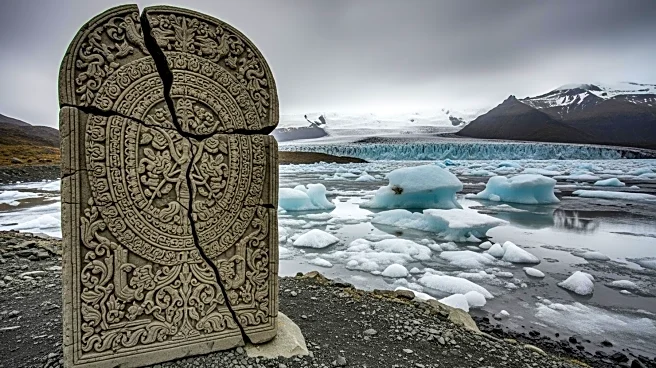What is the story about?
What's Happening?
Antara Haldar, a professor at the University of Cambridge, has drawn parallels between historical civilizational collapses and current inaction on climate change. She argues that the failure to adapt to ecological stress could lead to societal breakdown, similar to the fall of the Roman Empire. Haldar emphasizes the importance of institutional adaptation over technological solutions, citing various theories on societal collapse and the need for global cooperation to address climate challenges.
Why It's Important?
The comparison between historical collapses and modern climate inaction underscores the urgency of addressing environmental issues. It highlights the potential consequences of failing to adapt, including economic and social upheaval. The discussion may influence policymakers and global leaders to prioritize climate action and institutional reform. It also raises awareness about the interconnectedness of global systems and the need for collaborative solutions to prevent catastrophic outcomes.
What's Next?
As climate change continues to pose significant risks, international bodies and governments may need to implement more aggressive policies and strategies to mitigate its impact. The call for institutional adaptation could lead to reforms in governance and global cooperation, fostering resilience against ecological stress. Stakeholders will likely focus on building trust and collaboration to address these challenges effectively.
Beyond the Headlines
The discourse on climate change and civilizational collapse may prompt deeper reflections on human values and priorities, encouraging a shift towards sustainable practices and long-term thinking. It could also influence cultural narratives about progress and development.















